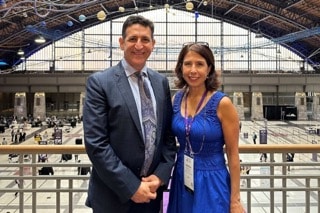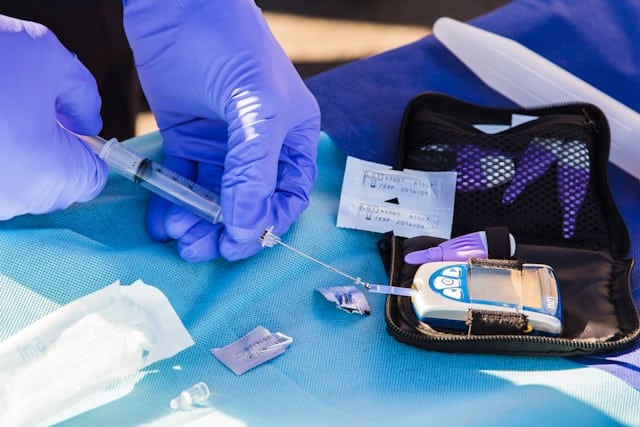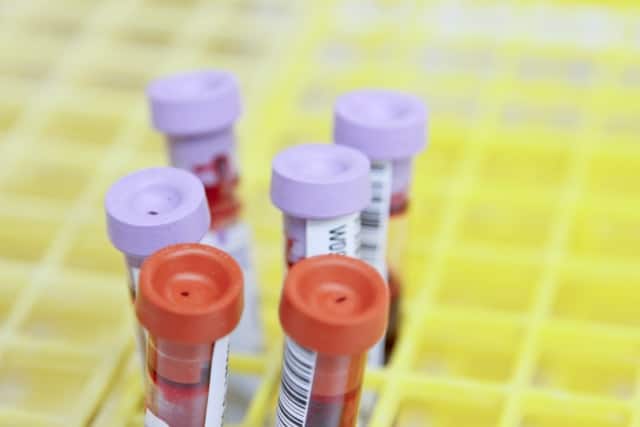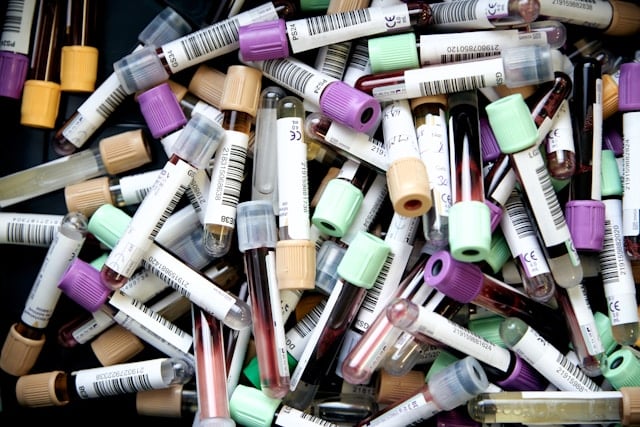Neurologist and Alzheimer's expert Dr. Marwan Sabbagh discusses research beyond monoclonal antibodies, biomarker blood tests, and mood at AAIC 2024.
Last week at the Alzheimer’s Association’s International Conference 2024, the world’s leading scientists, researchers, and clinicians gathered to discuss the latest discoveries and upcoming research in brain health research. Last year, much of the conversation revolved around monoclonal antibody drugs, many of which were not on the market yet. With lecanamab (Leqembi) and donanemab (Kisunla) now available, what’s the focus for clinicians and researchers this year?
This week, at the 2024 conference in downtown Philadelphia, Being Patient founder Deborah Kan has been connecting with leaders of the field all week to find out that focus, including neurologist and Alzheimer’s expert Dr. Marwan Sabbagh.
Sabbagh, who has previously joined Being Patient on live talks to discuss his expertise on genetics and diagnosis, is a board-certified behavioral neurologist at Barrow Neurological Institute’s Alzheimer’s and Memory Disorders Program. He’s also a professor at the institute’s Department of Neurology and has served as the lead investigator on a number of national clinical trials for Alzheimer’s prevention and treatments.
In this quick chat between panels at AAIC, Sabbagh discussed the next frontier of research beyond monoclonal antibodies, the potential of biomarker tests for diagnosis, and the atmosphere at AAIC.
Watch or read their conversation below.

Being Patient: Last year, everyone was talking about the monoclonal antibody therapies. We have two approved by the FDA available to patients—what’s everyone talking about today?
Dr. Marwan Sabbagh: A lot of things are unfolding. The first thing we’re seeing is that, now that we have those two in hand, we start looking at newer monoclonal antibodies against amyloid. Can we remove amyloid quicker, more efficiently, [and] more safely? That’s getting a lot of discussions. There are new treatments being discussed— new targets and combination therapy. That’s [the] first track.
The second track is focused on blood-based biomarkers, particularly p tau 217. Wherever that will land, where would the blood-based biomarkers land in clinical practice? They’re different platforms, different companies, different assays, but fundamentally, they’re all doing the same thing.

Being Patient: How much do we know about the efficacy of testing biomarkers to diagnose Alzheimer’s?
Sabbagh: As you know, a lot of them [have been used] in clinical trials. There’s been multiple validation studies, even this new C2N publication that just came out this week. The reason this is important is that we’re starting to see them slowly get into our clinical practice.
We have p-tau181, p-tau217, neurofilament light chain, [and] beta 42/40, and most of us think that’s not [where it’s] going to end. There’ll be more and more tests. Which platform, which company, how to use it, [whether] they use it as a screening tool, as a diagnostic— [how] do you use it? Would I give a patient a monoclonal antibody strictly on the basis of a blood test but do secondary tests? In other words, when you have a solution, multiple more questions and multiple schools of thought emerge.
Being Patient: How would you describe the mood here this week?
Sabbagh: I think the euphoria that we saw last year—it’s a little bit more muted this year. Not in a bad way. It’s more, “Head down. Now, let’s get to work.” [There’s] kind of a collectible optimism but now a little less euphoric, just working on more and more solutions.
Katy Koop is a writer and theater artist based in Raleigh, NC.




